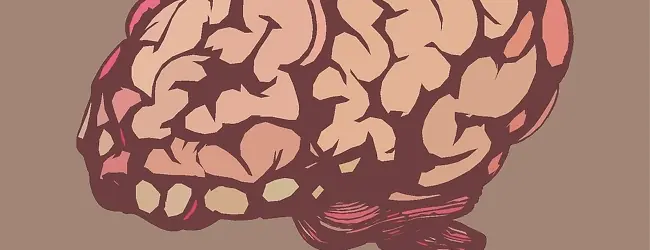Thanks to the discoveries through my recent experiences, I gradually understand how our minds work. Today, I will introduce a new mental framework that makes it easier to understand empathy.
How do our minds work?
Sometimes, we want to know how our minds work. When our minds are confused, we cannot control our thoughts.
One typical example is emotional upset. Intense empathy often makes us unable to deal with our anger, sadness, envy, grudges, and anxieties. Even though they are one of our mental parts, we cannot manage them. They exhaust us.
That is why we want to know our mental system.

However, there was no ideal model to explain our minds, especially how to control our emotions. That generated countless confusing, chaotic, and ad-hoc ways of thinking.
In other words, there was not an integrated mental framework around empathy, as far as I know.
Fortunately, I have recently discovered a new way to control empathy, so I created a new mental framework based on my experiences. This might allow you to understand how our empathy works and how to deal with it.
The mental composition
There are two points that the mental framework tells us. They are as follows:
- We have to focus on logical sense or sociality.
- We have to cultivate our philosophy if we have logical ability.

To explain them, let’s look at the mental composition with empathy at the center. The following elements make up our minds.
- Logical sense and sociality (consciousness): They are the most superficial functions of the brain to process emotions. We decide our behavior based on rationality or social values. They are located in the outer part of the brain (prefrontal cortex). We can control this work.
- Empathy: It is the relay function of the brain to process emotions. Its role is to detect emotions, amplify them as needed, and hand them to superficial functions—logical sense and sociality. If the same emotions continue to be generated, it amplifies until they calm down. We cannot control this work.
- Emotion-generating brain region: It is the brain’s first function to process emotions. It generates emotions based on the body’s stress. It is located in the center of the brain (hippocampus and amygdala). We cannot control this work.
Let me explain how emotions are processed below.
The process of emotional processing
When we feel stress, our brains generate emotions.
It includes not only negative ones but also positive ones, such as gladness and pleasure. From the body’s perspective, both joy and sadness are stresses that need to be resolved.

Our brains create emotions in light of our memories. Sadness or relief are signals that tell consciousness that we can relieve stress. Anger, anxiety, joy, and pleasure are signals to prepare for stronger stress. Fatigue is the signal to stop activity and thinking.
Then, empathy detects them. The first time it notices an emotion arises, it hands it to consciousness without amplifying it.
The decision of our behavior
Finally, we consciously decide how to behave based on the emotion. We recognize the emotion’s type and process it according to the situation.
If we notice it is sadness or relief, we decide to cry or laugh. We sometimes shed tears. Tears remove physical stress. Crying and laughter are similar reactions from the perspective of emotion.

If we notice it is anger, anxiety, joy, or pleasure, we try to be more active. Anger and anxiety remove our limits until the body is exhausted. Joy and pleasure invigorate us moderately.
If we feel the emotion of fatigue, we stop activity and thinking. Severe exhaustion means a forced thinking shutdown.
If we handle it properly, the stress will disappear from the body. That is one process of an emotion.
Why emotions become uncontrollable
However, if we fail to remove stress from our bodies, the emotion continues to arise.
In this case, empathy amplifies it and hands it to consciousness. Empathy demands treating it appropriately.
If we continue to ignore or fail it, empathy intensifies it more and more.

Therefore, when trying to escape our emotions, we become unsettled by them. Even small emotions at first can be a large disturbance.
In other words, if we can process it appropriately, we can complete it with small emotions. For example, flashbacks and worries for the future become less bothersome at all, even if we remember them.
The first point: where to focus on
It tells us the first point: where to focus on.
We have to focus on logical sense or sociality to solve mental problems caused by intense empathy.
There is nothing wrong with empathy. Although the degree of amplification varies from person to person, empathy itself is functioning normally.

Focusing on empathy doesn’t solve our mental problems. Logical sense or sociality does. If we have logical ability, we have to develop rationality.
This is the first point: We have to focus on logical sense or sociality.
The second point: philosophy
Let’s look at the second point: we have to cultivate our philosophy.
Assume we are empathic and logical people.
The cause would be an irrational environment in childhood. Unreasonable behaviors of our parents confused us. One typical example is this inconsistency: ‘A child’s success is thanks to the good teachings of the parents; a child’s failure is the child’s fault (or others’ fault).’
It is natural to be confused about our values if we live in such contradictions.

That is the main reason for not having cultivated our logical sense.
However, we already have enough self-control. Even though it was one aspect of values, we lived a disciplined life. It was until we were exhausted. There is no doubt we already have enough willpower.
In other words, we don’t have to be patient anymore. We need to reduce our endurance.
Cultivating our philosophy
What we need to cultivate is our philosophy.
Developing our philosophy consists of the following two parts:
- Establishing principles with rationality
- Being aware of them
They limit empathy.

Philosophy is a consistency of our behavior. It can also be said to be rules that determine our actions.
The cause of our pain is a poor philosophy. An example is the belief that we have to succeed in one aspect of values. Although we always have contradictory wants, such as being active and resting, we try to realize only one side.
Naturally, we are worn out. A poor philosophy is the cause of our drain.
Example of principles
Philosophy consists of several principles. Principles are individual rules.
In my case, I have two principles, as follows:
- I will not lie, at least to myself.
- I will accept my duality (the two contradictory wants inside me).

There could be various rules, such as declining things you don’t like, being aware of not being swayed by others’ expressions, and avoiding anything you cannot agree with.
We rationally refine them based on a mindset that suits us.
Limiting empathy by philosophy
The stronger the empathy is, the more refined, absolute principles we need. This is because these rules convince empathy.
Principles allow us to make emotional decisions without hesitation.
Then, the decision calms our body’s stress. This is because we know our principles help us rationally, even if it requires superficial sacrifices. That makes the body stop reproducing the same emotion. Empathy doesn’t amplify the emotion. We can resolve emotions at their first appearance.

Of course, we have to refine our principles. They are reliable, absolute rules to protect our lives from unnecessary stress. We need to establish ones that allow us to be patient as little as possible.
Being aware of these rules limits empathy’s amplification.
In other words, other logical activities, such as chess and programming, will not strengthen our rationality.
That is the second point: we have to cultivate our philosophy.
Conclusion
That is my mental framework based on my experiences.
It tells us two points. One is that we have to focus on logical sense or sociality. The other is that we have to cultivate our philosophy if we have logical ability.
This framework might allow you to understand how our empathy works and how to control it.
Thank you for reading this article. I hope to see you in the next one.


